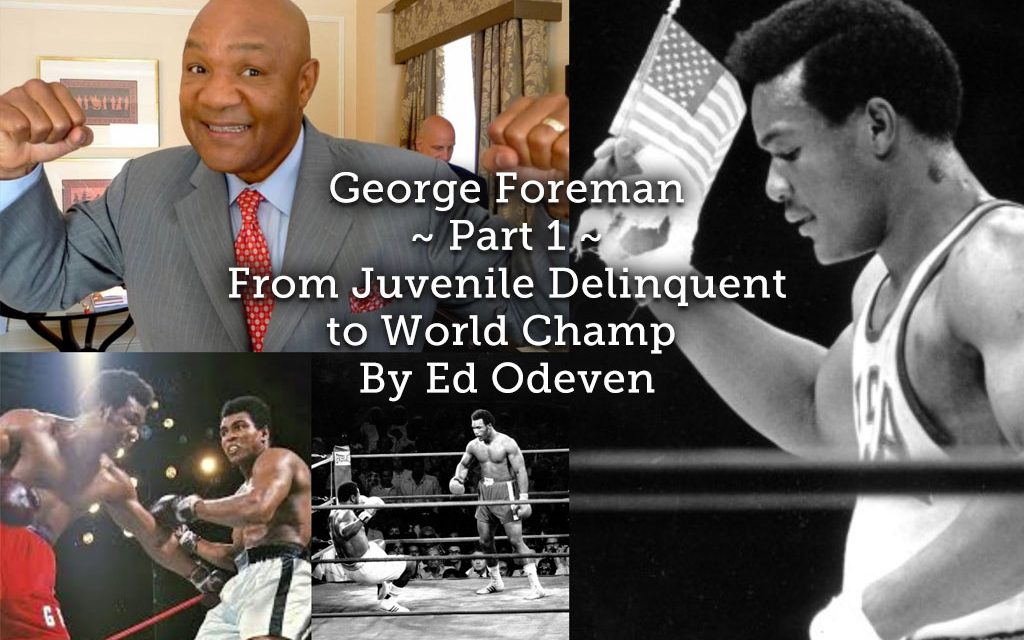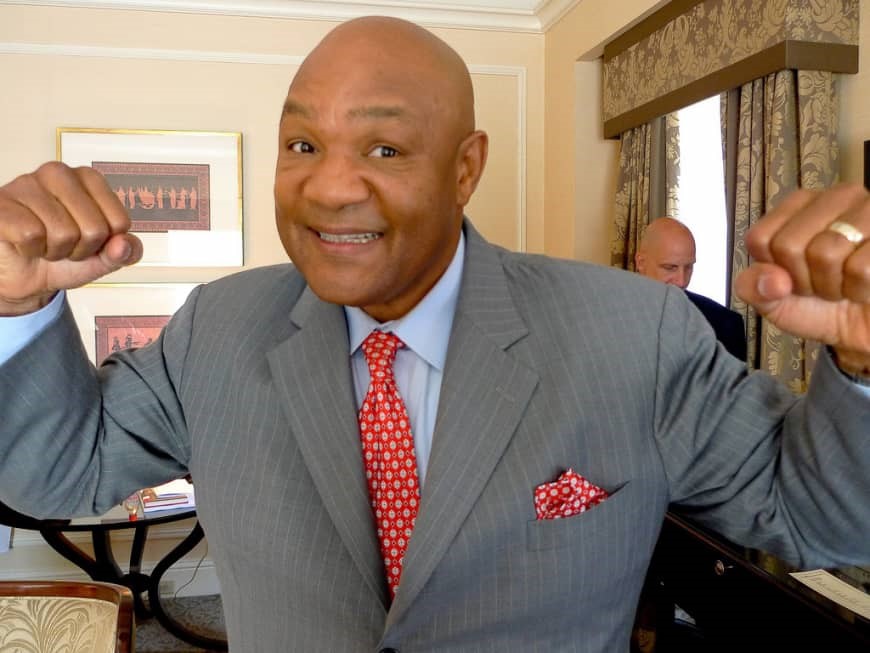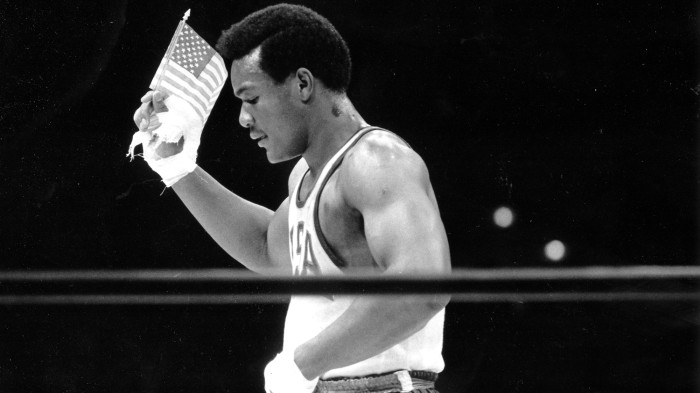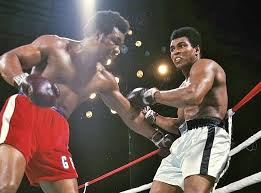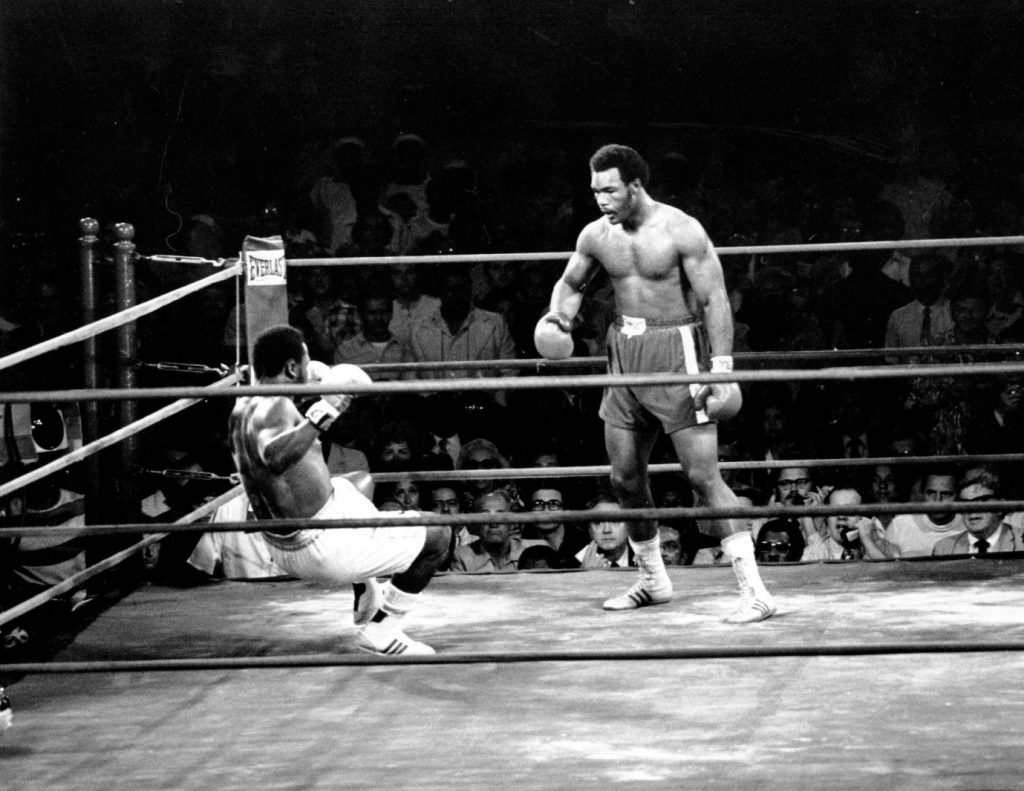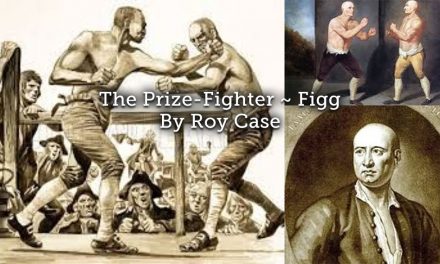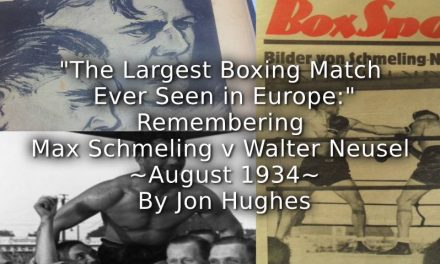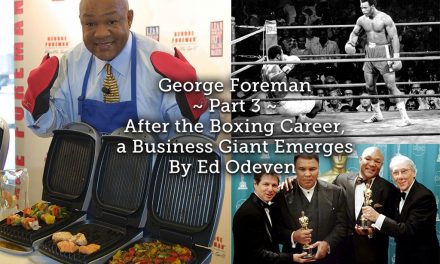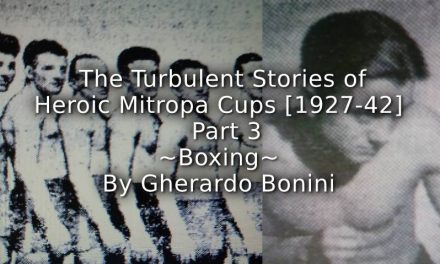George Foreman’s boxing career defied logic. To be heavyweight champion of the world in his 20s and to repeat the feat in his 40s, was unexpected — and historic, too.
There’s so much more, of course, to Foreman’s story. The popular pitchman. The preacher. The fight commentator. We’ve witnessed various stages of this larger-than-life figure for decades.
In Japan, Foreman fought twice, winning both times. The bouts represented different chapters in his improbable career (more on those fights in the second installment). Foreman knocked out Jose Roman in the first round, after two minutes had elapsed, on Sept. 1, 1973, at Tokyo’s Nippon Budokan in his first WBA and WBC heavyweight title defense. Likewise, Foreman had pulverized Joe Frazier that January in Kingston, Jamaica, knocking him down six times in two rounds, to become world champion.
Fast forward to Nov. 3, 1996, at Tokyo Bay NK Hall in Urayasu, Chiba Prefecture, where Big George in his wildly successful second chapter as a fighter — he began his comeback in 1987 — earned a unanimous decision victory over Crawford Grimsley. It was one of 81 pro fights for the Texas native, who won 76 times, 68 by knockout before retiring a second time at age 48.
This summer, Foreman discussed his career in the ring and life at his ranch in Marshall, Texas (where there are cows, chickens and goats, “but mostly I raise gate horses, horses that run real fast within a gate and don’t gallop, because I don’t like falling”) in an exclusive interview with The Japan Times. He also revealed details about preparation for sermons (he confessed that he’s read the Bible in its entirety several times), his zest for entrepreneurial opportunities (including the George Foreman Lean Mean Fat Reducing Grilling Machine, which has sold more than 120 million units worldwide) and much more.
- Two-time world heavyweight champion George Foreman, seen here in 2009, has enjoyed an amazing life after boxing
“Most of the time I’m on the road, and if I’m not on the road traveling, speaking, making public appearances or doing TV shows, I’m preparing or resting up for one,” Foreman said by phone from his ranch. “So typically for me I’m busy and I spend most weekends in church where I’m still a pastor at the Church of the Lord Jesus Christ (in Houston). But typically, I’m travelling all the time.”
Despite his busy lifestyle, Foreman, who turned 69 in January, confirmed that he’s full of energy.
“I really feel good now, I had a chance to really get into changing the way I eat. I no longer eat like I’m the heavyweight champion of the world. I eat like a man just trying to live more years, so with that in mind I’m healthier, very healthy.”
In October, Foreman visited Mexico City to commemorate the 50th anniversary of his unexpected gold-medal triumph in the Olympic heavyweight competition. World Boxing Council president Mauricio Sulaiman, whose late father Jose previously held the top WBC post, was among those who paid tribute to Foreman for his glorious achievement.
- George waves an American flag after winning the Olympic gold medal at the Mexico City Games
“This day has a very special meaning because it is necessary to take a few minutes to remember the glory of having been the venue for a sporting event as important as the Olympic Games,” Sulaiman was quoted as saying by fightnews.com. “George Foreman, a man who represents the best of boxing, a life of success and service that has been an example of overcoming and surrender, but above all of love to God.”
Life transformation
As a teenager, the high school dropout’s life lacked direction. Foreman’s life changed for the better when he left Houston’s Fifth Ward and joined the Job Corps after he heard a TV advertisement featuring football legends Johnny Unitas and Jim Brown promoting the corps’ opportunities. In March 1974, Foreman told The New York Times;
“I tried harder than you can imagine to be tough. I worked at it. Trouble was, I was a failure at crime. . . My heart really wasn’t in it. I thought I wanted to be a great thief and hustler. Every time we’d go to steal something, I’d either get caught or I’d drop what I was supposed to be stealing.”
First, he went to Grants Pass, Oregon, to study carpentry in 1965. The Job Corps then dispatched him to Pleasanton, California, where he earned his high school diploma. That’s also where boxing became a promising possibility and where he expressed an interest in it.
A Job Corps counsellor named Charles “Doc” Broadus, a former U.S. Air Force sergeant, encouraged the 16-year-old to give it a shot. It was Foreman’s second day in Pleasanton, he said.
“He told me to come down to the gym and try out and it was a little harder than I thought, and I wanted to hide from him and he said, ‘George, I thought you wanted to be a boxer. Are you scared?’ ” Foreman recalled. “I told him, ‘No.’ I didn’t have any shoes, and he made me sit down on the ground and he said wait and brought me some boxing shoes back.”
Listen to Broadus’ orders to Foreman, which he recounted decades later: “Now get down to the gym.” For Foreman, why was that so significant?
“It was the first time someone believed in me and gave me a chance,” he told The Japan Times. “If it had not been for Doc Broadus, there would not be George Foreman, a success story at all. What he meant to me, he didn’t say a lot to me about boxing — it was all ‘stick and move, George, stick and move’ — and it was enough, and that was enough to take me to an Olympic gold medal.”
Foreman collected gold in Mexico City with Broadus in his corner. He defeated Poland’s Lucjan Trela, Romania’s Ion Alexe, Italy’s Giorgio Bambini and the Soviet Union’s Jonas Cepulis in succession to capture the title.
And it paved the way for his future as a professional pugilist. He made his pro debut in June 1969, beating Donald Walheim at New York’s Madison Square Garden via a third-round knockout. A dozen more fights followed that year and 10 more KOs.
What made Foreman such an invincible, potent knockout artist?
“Fear was the determining factor,” he has said many times.
He expounded on that point in a fascinating question-and-answer session after a speech at England’s University of Oxford in June 2016. “And the one time I didn’t have fear,” Foreman said inside Oxford Union, “I fought Muhammad Ali in Africa. No butterflies, no fear. And it was the only time, truly, that I lost . . .”
Ali, who passed away in June 2016, was known for his gift of gab. But Foreman delivered a few zingers of his own.
To wit: After becoming heavyweight champ the first time (he then regained the title in 1994 at age 45 against Michael Moorer in Las Vegas), Big George displayed unwavering faith in his ability to obliterate his fistic counterparts inside the ring. In his memorable appearance at Oxford, which is posted on YouTube, Foreman illustrated that point. He held up his right hand, making a fist. He said, “This is my judge. Then, after raising his left hand, he stated, “This is my referee.”
Indeed, his hands created mayhem.
And then he met challenger Ali, a former and future heavyweight champ, in Kinshasa on Oct. 30, 1974. At the time, Foreman possessed a 40-0 record with 37 knockouts as pro. Going into the fight, Ali, the 4-1 underdog, was 44-2 with 31 KOs.
- Ali v Foreman 1974
That aura of invincibility disappeared as Ali employed his rope-a-dope strategy, absorbing a punishing beating from Foreman in the early rounds. In the eighth round, Ali knocked out Foreman to reclaim the title. More than four decades later, that fight remains one of the most famous upsets in sports history. The Rumble in the Jungle is still one of the most discussed fights of all time.
Though Foreman later said he wanted a rematch with Ali, it never materialized. Indeed, it’s partly due to the fact that Foreman retired after a loss to Jimmy Young in 1977, while Ali kept fighting until ’81. He had a spiritual awakening after the fight in his dressing room and then became a Christian preacher. (At Oxford, he told the story of a how he heard a voice inside his head during that transformative experience, describing it this way: “You believe in God. Why are you scared to die? I don’t want your money, I want you.”)
The seemingly invincible Foreman’s reign had ended, but the questions about how and why he lost to Ali continue to this day.
“People ask me, ‘How did you lose the fight to Muhammad Ali?’ Foreman told this newspaper. “I say he beat me with that good right hand. I loved that I was in the ring with him . . .”
“He hit me with the fastest one-two combination I’d ever seen, let alone been hit with,” Foreman insisted at Oxford.
Memories of Ali
As the conversation shifted to more personal matters, Foreman was asked when was the last time he interacted with The Greatest.
“The last time I actually saw Muhammad Ali by remote,” Foreman stated. “His daughter Hana Ali put him on FaceTime with me on the telephone, and that was less than a year before he passed away, and he looked at me and gave me a frown, then a smile, and he was so happy because he was eating something sweet. He loved to eat sweet things, and it looked like someone had made him a piece of watermelon on a stick, and then showed it to me, like, ‘Look at this,’ and then he ate it. He was so happy.
“But before then, I’d seen him on his 70th birthday party in Las Vegas. . . . We spent time (together). We hugged and talked and everything. I loved that man. To this day, I still love him. I love him and miss him. He was my oldest living friend when he passed away.”
Another tale from Foreman’s early days as a pro brings a smile to his face to this day. It was in December 1969, when he was preparing to fight Levi Forte.
“My favorite story about Muhammad Ali is I first met him in Miami, Florida,” Foreman said. “I was going to box my first 10-rounder. So the television people came to film me that day, and he must have heard about it. They didn’t want to film him. They wanted to be certain that he wouldn’t even be in the photographs. . . . But anyway, he came up the stairs and I could hear him walking up the stairs and he shouted, ‘George Foreman . . .’
“He saw I admired him. He said, ‘Stay here, I’m going to show you what you’re going to have once you become heavyweight champ of the world like me,’ ” Foreman recalled.
“I sat down and waited for him after my workout, and he came back up the stairs with all that noise and said, ‘look.’ He had a briefcase with him. I thought he was going to show me a hundred thousand dollars cash. I opened the briefcase and I waited, and there was a telephone. A briefcase telephone, and in those days there weren’t cellphones at all. . . . He had a telephone in a briefcase and he picked it up and said, ‘See, you can have this once you become champ of the world.’ I expected more,” Foreman added, chuckling.
And what was the first thing Foreman purchased after becoming the heavyweight champ?
A briefcase telephone for about $300-$400.
What does Foreman miss most about Ali, whom he admitted hating after the loss in Zaire before becoming his close friend a few years later?
“Just him being around,” Foreman said. “I would do an interview and I would achieve something, and it would all be because it was built around him — Muhammad Ali did this and Muhammad Ali didn’t do this. My whole life was built around him.
“One day we spoke on the telephone, and I’ll tell you how competitive he had been. And he sent me a photograph of his son and his grandson. He was holding them, I said, ‘Wow.’ And then I sent him back a photograph of my grandson with me. He got so competitive he sent me three (photos). He had three grandsons. He wanted to win everything. . . . He wanted to make certain I knew he had more than just one. He wanted to win.”
Winning, of course, produced thrills in the ring. Above all, though, from the era of his influential trainer Broadus, who was born in 1919, helped guide Sugar Ray Leonard’s legendary career and passed away in 2008, to the present day, a century of boxing history flows through Foreman’s veins. He cherishes its history and respects the legends of the sweet science.
- Heavyweight champion Joe Frazier is knocked to the canvas for the third time by George Foreman in the first round of their title fight in Kingston, Jamaica, on Jan. 22, 1973. Foreman won by TKO in the second round.
Which is why Big George’s aforementioned triumph over Frazier still resonates with him 45 years later.
“The first time I won the championship of the world it was like, ‘I can’t believe it.’ Once you become champion of the world, it’s like, Jack Dempsey, Jack Johnson, Joe Louis, John L. Sullivan, Muhammad Ali!” he proclaimed, his voice rising a few decibels. “. . . It’s like they all just run into your body like a rush. You know that you’re the champion of the world and you feel it. You feel like something ancient all of a sudden. You don’t feel like the regular guy anymore. I felt like an ancient being from way back in the past. That was a rush like none other.”
Heavyweight champion Joe Frazier is knocked to the canvas for the third time by George Foreman in the first round of their title fight in Kingston, Jamaica, on Jan. 22, 1973. Foreman won by TKO in the second round.
Article © Ed Odeven
Reprinted by kind permission of the author, first published in the Japan Times (https://goo.gl/fTDzz
To read Part 2 – Click HERE

